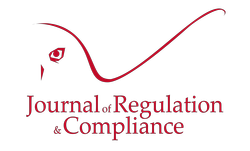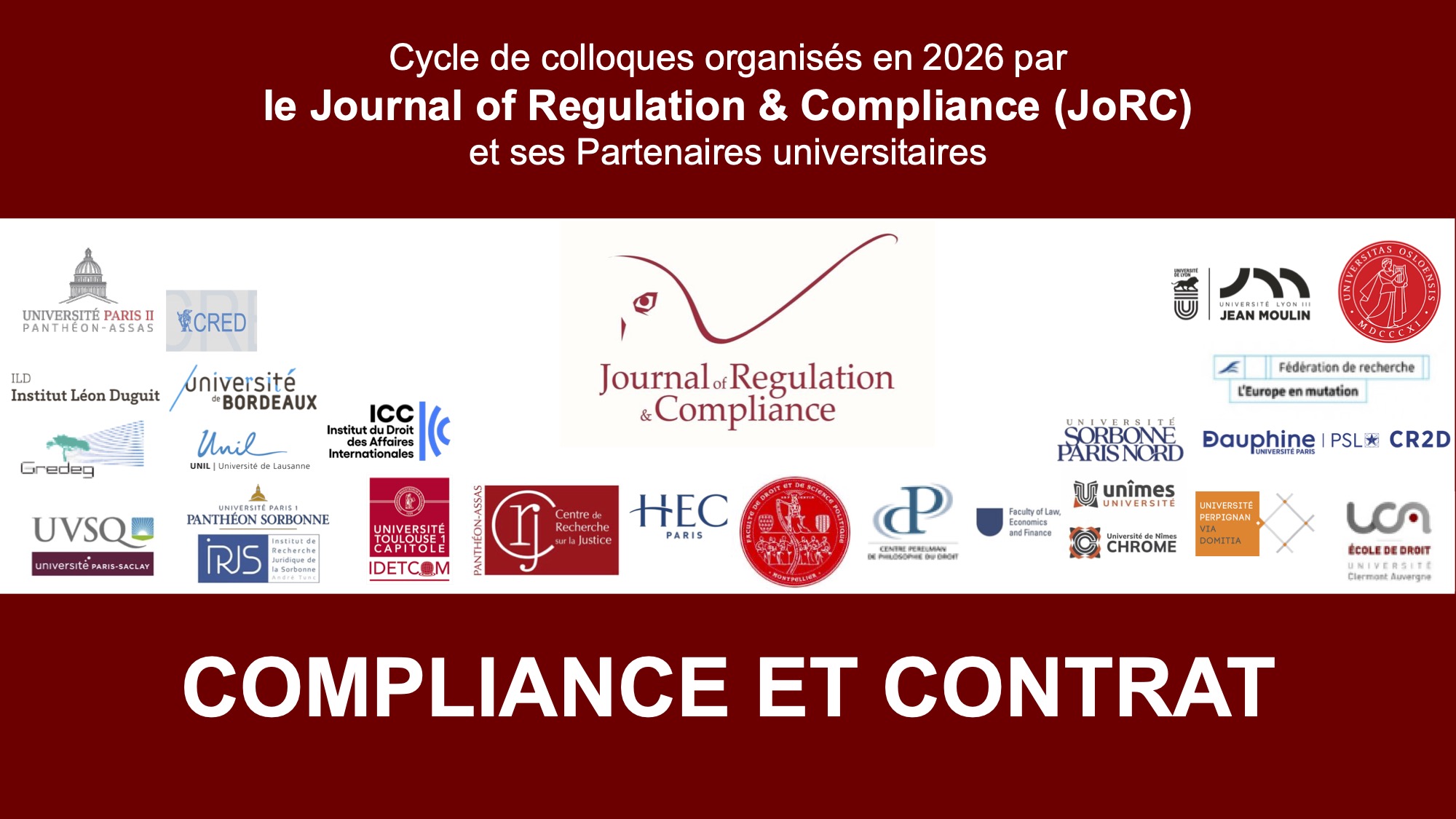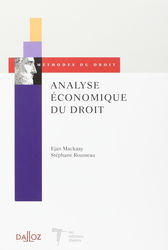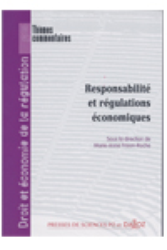
Organization of scientific events

► Full reference : M.-A. Frison-Roche, Scientific coprdination and co-hosting of the colloquia series Compliance and Contract, organised on the initiative of the Journal of Regulation & Compliance (JoRC) and its academic partners
____

____
► The Symposium Series in a nutshell : As a direct continuation of the previous symposium series co-organised by the Journal of Regulation & Compliance and its partner universities on "Compliance Obligation", which served as the basis for the publication of the book 📘Compliance Obligation, The series, some elements of which began in 2024 and others are already present in this book, explored in depth the specific theme of the links between compliance law and contracts. Indeed, compliance law is often analysed as the construction of laws and regulations to achieve "📘 Monumental Goals " of a political nature desired by States and public authorities, to the achievement of which systemic economic operations contribute through 📘Compliance Tools that are now well documented. Contracts are still relatively little studied, or even developed, in compliance systems that are often perceived through the orders issued, the technologies put in place and the 📘sanctions to be avoided or endured. On the contrary, the future of compliance law, particularly in its European conception, which places human beings at the centre of concerns for the sustainability of systems and the use of contracts, is the new conception that we must adopt. Contracts then appear to be both the means by which the subject company fulfils its legal obligations, forges relationships with other actors and deploys the necessary innovations. Contract law is both used and renewed as a result. The series of symposiums will examine various aspects of this general issue. It will result in the publication of a 📘book Compliance and Contrat.
____
► Presentation of symposiums in development :
- March 2026: COMPLIANCE AND SOCIAL CONTRACT: read the presentation
- 24 April 2026🧮COMPLIANCE: CLAUSE BY CLAUSE: read the presentation
- 29 May 2026🧮THE JUDGE CONFRONTED WITH CONTRACTS OF COMPLIANCE AND COMPLIANCE CLAUSES: read the presentation
- June 2026🧮COMPLIANCE AND COMMON CONTRACT LAW : read the presentation
- June 2026🧮THE "CONTRACT OF COMPLIANCE" : read the presentation
- September 2026🧮COMPLIANCE, VALUE CHAINS AND CONTRACT: read the presentation
________

Updated: April 23, 2025 (Initial publication: April 5, 2023)
Publications

🌐follow Marie-Anne Frison-Roche sur LinkedIn
🌐subscribe to the Newsletter MAFR Regulation, Compliance, Law
🌐subscribe to the Video Newsletter MAFR Surplomb
____
 ► Full Reference : M.-A. Frison-Roche, The judge required for an effective Compliance Obligation, Working Paper, June 2024
► Full Reference : M.-A. Frison-Roche, The judge required for an effective Compliance Obligation, Working Paper, June 2024
The judge required for an effective Compliance Obligation
____
📝 this Working Paper is the basis of the contribution "Le juge requis pour une Obligation de Compliance effective", in 📘Compliance Obligation
____
► Summary of this Working Paper: The Judge is a character who seems weak in a Compliance Law that seems so powerful in a world where Technology is developing even a more impressive power. But present and future cases show, on the contrary, that he or she has a central role to play and that his/her role must be to use his/her own strength to remain what he/she is: the guardian of the Rule of Law, which is not so obvious because many Compliance tools, which are technological in nature, are in a way 'insensitive' to what we hold dear, the protection of human beings, which is based on the diligence of companies (I).
The second role that we can expect of the Judge is that not only does he/she help to ensure the permanence of this Rule of Law, which relies to a large extent on him:Her in the face of a future world that is unknown to us, mainly in its digital and climatic dimensions, perspectives that Compliance Law seeks to grasp, by renewing Regulation Law, by acting in relation to companies whose role is active, which leads the Judge to control them and to be aware of the claims that can be made against them, without taking the place of their management powers (II). This presupposes a new method (III), and all the judges, however diverse, will converge in an active dialogue between the judges, which will enable, firstly, the traditional role of the judge, linked to the Rule of Law, to endure in a rapidly changing world and, secondly, each judge to take on this new role implied by Compliance Law (IV).
The perfect triangle will then be established, the strength and simplicity of which allows the use of the singular and the retention of capital letters for each of these three terms: Regulation Compliance Judge.
____
🔓read the Working Paper below⤵️

Updated: Feb. 25, 2025 (Initial publication: Dec. 2, 2023)
Publications

🌐follow Marie-Anne Frison-Roche sur LinkedIn
🌐subscribe to the Newsletter MAFR Regulation, Compliance, Law
🌐subscribe to the Video Newsletter MAFR Surplomb
____
 ► Full Reference : M.-A. Frison-Roche, Compliance, Vigilance and Civil Liability: put in order and keep the sense of Reason, Working Paper, June 2024
► Full Reference : M.-A. Frison-Roche, Compliance, Vigilance and Civil Liability: put in order and keep the sense of Reason, Working Paper, June 2024
____
📝 In its French version, this Working Paper is the basis of the contribution "Compliance, Vigilance et Responsabilité civile : mettre en l'ordre et raison garder", in 📕L'Obligation de Compliance
____
► Summary of this Working Paper: The descriptions of the Liability incurred by large companies as a result of their compliance obligations are very diverse, even contradictory, going beyond the wishes that may be expressed as to what this liability should be. The first part of this study therefore sets out the various liabilities incurred by companies, which differ in the conditions under which they are implemented and in their scope, so as not to confuse them.
Indeed, as the various laws establish specific legal compliance obligations, they give rise to liabilities of varying conditions and scope, and it is not possible to avail of the regime of one in a situation that falls within the scope of another. It is therefore necessary to review the various bodies of compliance legislation, the GDPR, the ALM-FT regulations, the French so-called Sapin 2 law, the French so-called Vigilance law , the European IA Act , the European European DGA Act, etc., to recall the inflexion that each of these bodies of legislation has made to the liability rules applied to the companies subject to them. Nevertheless, the unicity of the Compliance Obligation, overcoming this necessary diversity of situations, regulations and liability regimes, can provide grouping lines to indicate beyond this diversity the extent of the liability incurred by companies.
Once this classification has been made, the second part of the study develops the observation that none of this can create any principle of general liability on large companies in terms of compliance, and in particular not in terms of vigilance. It is not possible to deduce a general principle of specific obligations of liability or specific obligations to reparation, for example in the area of vigilance, as the texts creating specific vigilance obligation refer to the conditions of commun Tort Law (proof damage and causality), and International Public Law does not have the force to generate a general principle binding companies in this respect.
The third part stresses that it is nevertheless always possible to invoke Tort Law, and companies cannot claim to escape this. This may involve contractual liability, a situation becoming increasingly frequent as companies contractualise their legal compliance obligations, reproducing them but also modifying them, and as Vigilance duty is an obligation that goes beyond the specific situations covered by the regulations.
But it is essential, and this is the subject of the fourth part, not to make companies pure and simple guarantors of the state of the world, present and future. Indeed, if we were to transform sectoral compliances into illustrations of what would then be a new general principle, but one that applied only to them, they would consequently exercise the other side of this coin, namely power over others.
____
🔓read the Working Paper below⤵️

Updated: Dec. 4, 2024 (Initial publication: Feb. 6, 2024)
Publications

🌐follow Marie-Anne Frison-Roche on LinkedIn
🌐subscribe to the Newsletter MAFR Regulation, Compliance, Law
🌐subscribe to the Video Newsletter MAFR Surplomb
____
 ► Full Reference: M.-A. Frison-Roche, In Compliance Law, the legal consequences for Entreprises of their commitments and undertakings, June 2024.
► Full Reference: M.-A. Frison-Roche, In Compliance Law, the legal consequences for Entreprises of their commitments and undertakings, June 2024.
____
📝 This Working Paper is the basis for the contribution "In Compliance Law, the legal consequences for Entreprises of their commitments and undertakings", in📘Compliance Obligation.
____
► Summary of this Working Paper: The innocents might believe, taking the Law and its words literally, that "commitments" are binding on those who make them. Shouldn't they be afraid of falling into the trap of the 'false friend', which is what the Law wants to protect them from (as stated in the prolegomena)?
Indeed, the innocent persons think that those who make commitments ask what they must do and say what they will do. Yet, strangely enough, the 'commitments' that are so frequent and common in compliance behaviours are often considered by those who adopt them to have no binding value! Doubtless because they come under disciplines other than Law, such as the art of Management or Ethics. It is both very important and sometimes difficult to distinguish between these different Orders - Management, Moral Norms and Law - because they are intertwined, but because their respective standards do not have the same scope, it is important to untangle this tangle. This potentially creates a great deal of insecurity for companies (I).
The legal certainty comes back when commitments take the form of contracts (II), which is becoming more common as companies contractualise their legal Compliance Obligations, thereby changing the nature of the resulting liability, with the contract retaining the imprint of the legal order or not having the same scope if this prerequisite is not present.
But the contours and distinctions are not so uncontested. In fact, the qualification of unilateral undertaking of will is proposed to apprehend the various documents issued by the companies, with the consequences which are attached to that, in particular the transformation of the company into a 'debtor', which would change the position of the stakeholders with regard to it (III).
It remains that the undertakings expressed by companies on so many important subjects cannot be ignored: they are facts (IV). It is as such that they must be legally considered. In this case, Civil Liability will have to deal with them if the company, in implementing what it says, what it writes and in the way it behaves, commits a fault or negligence that causes damage, not only the sole existence of an undertaking.
_____
🔓read the developments below ⤵️
Dec. 27, 2023
Thesaurus : Doctrine

► Référence complète : M. Fabre-Magnan, "Critique de la convergence des responsabilités contractuelle et délictuelle. L'exemple du devoir de vigilance", in Mélanges en l'honneur du Professeur Loïc Cadiet, LexisNexis, 2023, pp. 547-561
____
► Résumé de l'article : Après avoir rappelé les oppositions doctrinales entre les auteurs qui considèrent que la responsabilité civile délictuelle n’existerait pas et ne serait qu’une exécution par équivalent du contrat, et ceux qui au contraire sont partisans d’une assimilation des responsabilités civiles contractuelle et délictuelle, l'auteure s'attache à démontrer que les évolutions contemporaines du droit de la responsabilité nous orientent vers une confusion des responsabilités délictuelle et contractuelle, au détriment de la première. Cette extension du modèle de la responsabilité contractuelle à la responsabilité délictuelle est porteuse de 3 risques : une relativisation de la responsabilité délictuelle, une limitation de la réparation aux dommages prévisibles et une réduction de cette responsabilité à l’exécution d’obligations déterminées.
Pour illustrer ce phénomène, l’auteure prend l’exemple fil rouge du devoir de vigilance des sociétés mères et entreprises donneuses d'ordre, dont le régime de responsabilité, ou du moins les analyses qui en sont faites, sont particulièrement révélateurs de ce mouvement.
À ce titre, l’auteure pointe le risque de confusion qui existe entre l’obligation générale de prudence et de diligence découlant des articles 1240 et 1241 du Code civil et les autres devoirs et obligations spéciaux, dont le devoir de vigilance fait partie. Elle met en avant l’importance de bien distinguer entre ce qui est spécial et ce qui est général, ce qui l’amène à réaffirmer une distinction entre des éléments souvent confondus : le devoir de vigilance, la diligence et le duty of care britannique.
Elle critique également la logique qui consisterait à limiter l’action en responsabilité civile sur le fondement du devoir de vigilance au « bénéficiaire » de cette loi. Un tel raisonnement, de recherche d’un bénéficiaire dont les intérêts seraient protégés par un texte et qui de fait aurait intérêt à agir en cas de violation de celui-ci, n’est pas d’essence délictuelle mais contractuelle et ne devrait pas s’appliquer ici. Elle estime que tout manquement à ce devoir spécial devrait permettre à toute personne qui y a intérêt d’agir sur le fondement de la responsabilité civile délictuelle.
L’auteure constate par ailleurs une tendance à limiter la réparation du dommage, dans le cadre de la responsabilité civile délictuelle, au dommage qui serait prévisible, comme en matière de responsabilité civile contractuelle. Elle relève également la montée en puissance contemporaine de la prévention des dommages et d’une responsabilité ex ante. Elle met en garde sur le fait que si ce mouvement est heureux, il ne doit pas conduire à limiter la responsabilité civile délictuelle classique. Par exemple, en matière de vigilance, elle estime que le respect par l’entreprise des obligations ex ante de détection et prévention des dommages qui lui incombent au titre de la loi de 2017 ne doivent pas constituer une cause d’exonération lui permettant d’échapper à une action en responsabilité civile délictuelle (fondée sur une faute autre que l’élaboration et la mise en oeuvre du plan) en cas de réalisation effective d’un dommage.
____
🦉Cet article est accessible en texte intégral pour les personnes inscrites aux enseignements de la Professeure Marie-Anne Frison-Roche
________
Updated: July 31, 2013 (Initial publication: Nov. 8, 2011)
Teachings : Les Grandes Questions du Droit, semestre d'automne 2011

March 5, 2008
Thesaurus : Doctrine

Référence complète : Mackaay, E., et Rousseau, S., Analyse économique du droit, coll. "Méthodes du droit", coédition Dalloz/ Thémis, 2008, 728 p.
Consulter la table des matières.
Lire la quatrième de couverture.
April 7, 2007
Publications

Références complètes : FRISON-ROCHE, Marie-Anne (dir.), Responsabilité et régulation économique, coll. "Droit et Economie de la Régulation", vol.5, Dalloz / Presses de Sciences Po, 2007, 187 pages.
L'ouvrage analyse dans sa première partie le rôle des responsabilités dans les régulations économiques d'une façon générale. Pour l'analyse économique, cela s'insère dans la perspective des incitations, tandis que les juristes, plus attachés aux principes fondamentaux du droit pénal, sont réticents face à cette instrumentalisation. Le droit public conçoit davantage la responsabilité comme un mode de reddition des comptes pour des structures puissantes et indépendantes. La seconde partie de l'ouvrage porte sur des secteurs particuliers, à savoir le secteur bancaire et financier, le secteur de la publicité et l'arbitrage CERDI.
Accéder à l'article de Marie-Anne Frison-Roche : Responsabilité, indépendante et reddition des comptes dans les systèmes de régulation économique
Lire le résumé de l'ouvrage ci-dessous.